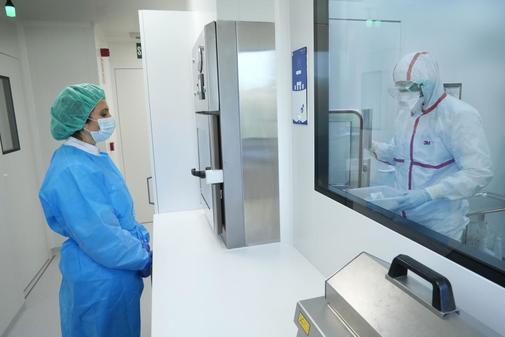Without chemo, cancer treatment would not be what it is today. It works very well and saves many lives thanks to its ability to destroy cancer cells. However, sometimes, it also damages the healthy ones. Hence, in some patients long-term side effects have been described, such as new tumors or cardiovascular problems, especially in pediatric patients. The reason: the mutations that this type of treatment can cause in the genome.
For the first time, a team of researchers from the Biomedical Research Institute (IRB Barcelona) has studied in human samples the genetic alterations derived from five of the most common chemotherapeutic agents and a type of radiotherapy. In total, they have analyzed 3,500 genomes of people with metastatic tumors, from the Hartwig Medical Foundation in the Netherlands.
Using mathematical and bioinformatic methods, "we have been able to identify and distinguish what type of mutations are specifically caused by this type of therapy (cisplatin, oxaliplatin, carboplatin or capecitabine), unlike patients not treated with chemotherapy," said the lead researcher. , Nuria López-Bigas .
As it appears in the study article, published in the journal 'Nature Genetics', in comparison with the alterations due to natural endogenous processes of the cells, "we have calculated that during the time of treatment, some of the most used chemotherapies cause alterations in the DNA at a rate between one hundred and a thousand times faster. "
Throughout our lives, the expert clarifies, "by the simple act of breathing, we accumulate mutations in our cells every day. There is no need to create alarm. Most are harmless." In very specific cases, these alterations can promote the development of a cancer. Tobacco smoke, solar radiation, the body itself ... Or chemotherapy. " It is important to understand how this type of treatment affects the DNA of the cells in order to avoid it ."
To date, López-Bigas, head of the Biomedical Genomics Laboratory and associate professor at Pompeu Fabra University, points out, "it has only been possible to analyze through cell lines in culture, but we have been able to verify the real mutations that this type of treatments cause in the patient ".
It is a first step to understand the relationship between these mutations and the side effects that these therapies cause in the long term (up to 10 years later), such as secondary tumors and cardiovascular problems. In the future, this knowledge will optimize cancer treatments. "The objective is to maximize the beneficial effects of chemotherapies by destroying the tumor cells while minimizing the amount of mutations induced in the healthy cells of the patients. This would be achieved through a balanced combination of dose and duration of treatment. "says the expert.
Before this can be achieved, we still have to go deeper into the processes behind these mutations and what exactly happens at the molecular level. At the moment, " chemotherapy is one of the most used treatments for cancer, also in combination with other routes such as immunotherapy, and saves many lives ."
According to the criteria of The Trust Project
Know more- Science and Health
- Health
Health Sanity lowers the price of 1,290 medicines
Research Children not vaccinated with measles suffer from 'immune amnesia' against other pathogens
HealthLive with the rarest blood in the world: "It is scary to think that there are so few people in the world like you"

